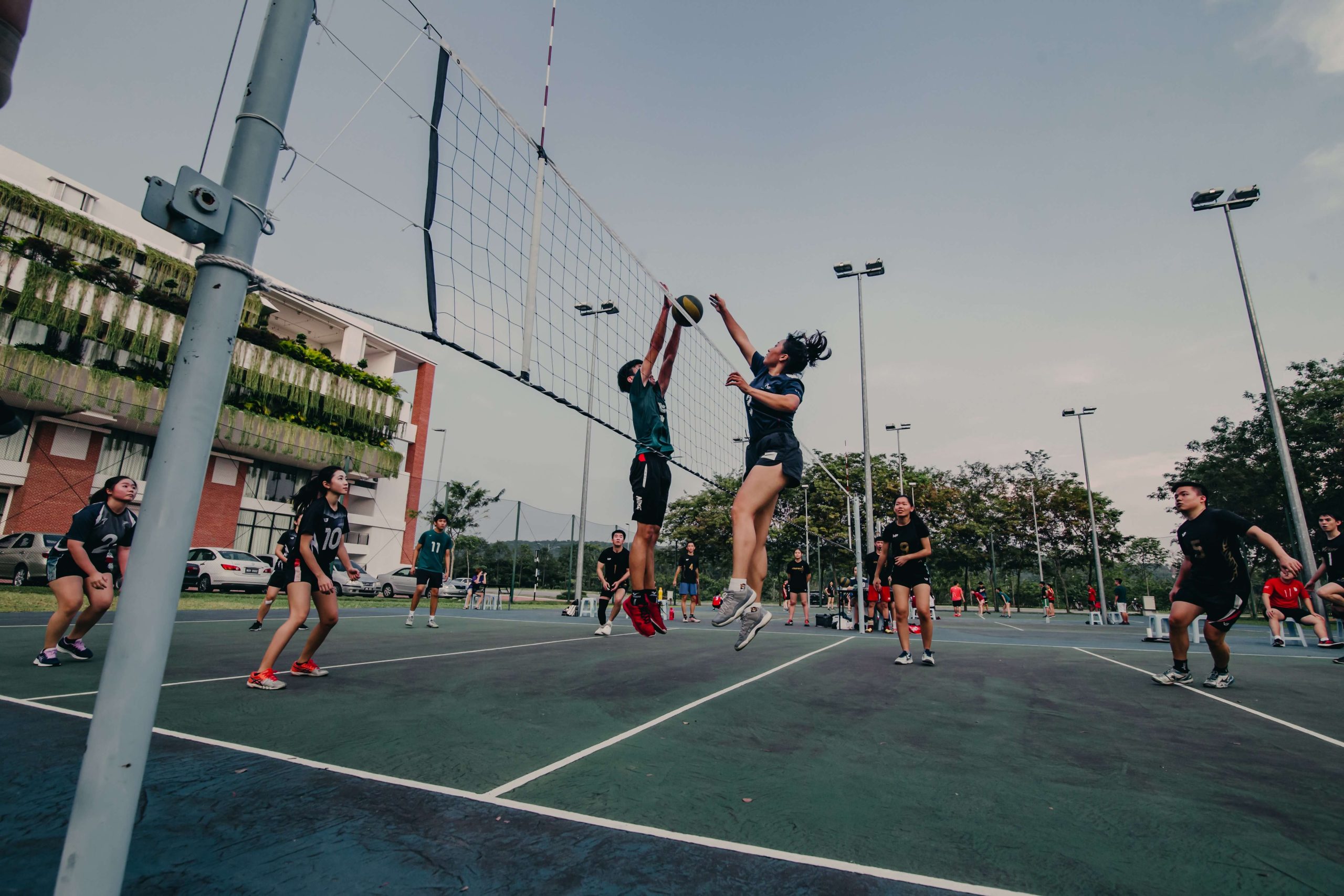Patellar tendonitis, more commonly known as jumper’s knee, is an unfortunately common condition affecting athletes. It’s especially common among athletes in jumping sports, but even recreational athletes can develop this sports injury. For those currently struggling, are patellar tendonitis treatment options available that don’t require surgery and significant downtime? Or better yet, can any steps be taken to prevent the development of this condition? Keep reading to learn all about patellar tendonitis, its causes, non-operative treatment options, and prevention tips.
What is Patellar Tendonitis?
The patellar tendon connects the bottom of your kneecap to the top of your shin bone. Together with the thigh muscles (quadriceps) and other connective tissues, the patellar tendon allows you to extend your knee so that you can jump, kick, and run.
Patellar tendonitis occurs when the patellar tendon becomes inflamed. This inflammation then weakens the tendon and, without patellar tendonitis treatment, can lead to tearing of the patellar tendon. How does this inflammation happen? When your knee’s tendon tissues are repetitively pushed too far or too fast, this places stress on the tendon. Over time, the strain of repeated jumping or sprinting can cause many small strains or tiny tears that make tissue tendons sore and lead to inflammation.
Not sure if you have patellar tendonitis? The symptoms of this condition generally present as pain or a dull ache felt at the top of the shin bone or just under the kneecap, a feeling of stiffness making it difficult to extend your knee, and pain that worsens with specific movements, such as squatting or walking down steps.
Likely due to its name, many people tend to believe that jumper’s knee only affects athletes. While athletes are most commonly affected by this condition, especially basketball and volleyball players, almost anyone can develop this condition. Even athletes that don’t participate in sports that require frequent jumping can develop patellar tendonitis. That’s why our practice doesn’t exclusively treat athletes. If you’re suffering from patellar tendonitis, we want to help you get your mobility back!
Causes & Prevention Tips
What causes patellar tendonitis and how can you avoid it? There are a few different causes of this condition, but we’ll list some of the most common.
- A sudden increase in how much you jump.
- Immediately returning to a sport or activity after a break without slowly increasing your level of activity.
Certain factors may place some people at a higher risk of developing patellar tendonitis. This includes your age, activity level, and the type of sports or activities you engage in. Some sports that place participants at the highest risk for this condition include:
- Basketball
- Dance
- Figure skating
- Football
- Gymnastics
- Running
- Track
- Volleyball
Fortunately, if your goal is to reduce your risk of patellar tendonitis injury, there are some steps you can take that will help you avoid it.
Start by making sure that any athletic gear you wear fits you properly. Once you have gear that fits your body, always take time to stretch before any activity. You should stretch for at least 5 minutes to increase the elasticity of your muscles and tendons and reduce their likelihood of tearing. Once you’ve stretched, begin your warmup, and don’t rush it. Pushing your body too hard too quickly increases your risk of all kinds of injuries, so always take your time.
It’s also important to make sure your body mechanics are correct. This is especially true when you’re starting a new sport, but you may not be using proper form even if you’ve been playing a sport for years. Take time to make sure that your mechanics are correct when playing to avoid injury due to mistakes like improper landing after a jump.
When to Seek Help & Options for Patellar Tendonitis Treatment
If you believe that you may have patellar tendonitis, the biggest question on your mind is probably “When should I reach out to a doctor?”
If you’ve been feeling dull pain around your knee that persists after you stop activity, sharp, severe pain in your knee after a sudden movement or knee pain that worsens when you’re active, it may be time to contact your doctor. Keep in mind that the longer you put off evaluation for patellar tendonitis, the worse this injury can become. Getting treatment as soon as possible is the best way to avoid a serious issue that may require surgery.
If you’re struggling with this condition and it’s affecting your ability to work, lead an active lifestyle, or just generally live your life, our doctors specialize in minimally invasive and non-operative treatment that can get you back to your life quickly and without severe limits to your mobility. Some of the treatments we offer for this condition include:
- Alpha 2 macroglobulin injection (PRP). Also known as platelet-rich plasma injections, this is a non-operative and minimally invasive regenerative therapy.
- Tenex Tenotomy. Tenex Tenotomy is a minimally invasive treatment option used to treat tendonitis.
- Autologous stem cell injection. Like, A2M injection therapy, ASCI is a non-operative and minimally invasive regenerative treatment.
Non-Operative & Minimally Invasive Patellar Tendonitis Treatment in Delaware County Pennsylvania
Our doctors are authorities in non-operative treatment of orthopedic conditions, sports medicine, and minimally invasive treatments. We know how important it is for our patients to get back into the game of life, whether they’re athletes who want to get back to their sport quickly, someone who wants to get back to their active lifestyle, or just want to get back to work. Whatever your reason for seeking treatment, we understand that minimally downtime and maximum mobility, once you’ve fully healed, is the goal. That’s why we provide the most advanced and least invasive treatment options.
If you’d like to learn more about our services or contact us to schedule a consultation, please call our office in Glen Mills, Pennsylvania, at (610) 459-4200 or fill out our form. We welcome your inquiry and we look forward to helping you find relief from your pain!

